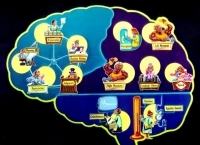 It is a busy Monday night in the emergency department. You’ve arrived with your 2 year old child. You cannot get in to see your family doctor and she’s got a fever of 39.5 C, a sore throat and an earache.Your daughter’s crying and miserable. There is a long line up at triage. Eventually you are seen and assessed by a triage nurse and then sent to the waiting room. The waiting room is packed, your child is miserable and you are wondering how long are you going to have to wait for?
It is a busy Monday night in the emergency department. You’ve arrived with your 2 year old child. You cannot get in to see your family doctor and she’s got a fever of 39.5 C, a sore throat and an earache.Your daughter’s crying and miserable. There is a long line up at triage. Eventually you are seen and assessed by a triage nurse and then sent to the waiting room. The waiting room is packed, your child is miserable and you are wondering how long are you going to have to wait for?


